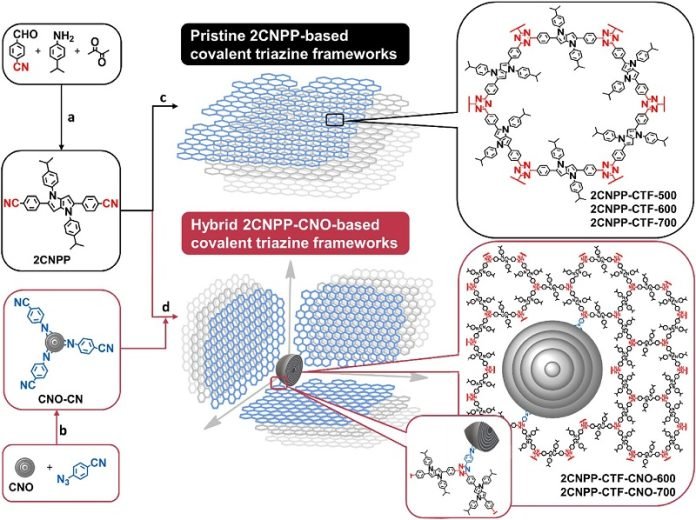
In an exciting new development, researchers have achieved a groundbreaking milestone in the energy storage capacity of supercapacitors.
Led by Professor Luis Echegoyen from The University of Texas at El Paso and Dr. Marta Plonska-Brzezinska from the Medical University of Bialystok, Poland, the study has set a new record for capacitance—the ability to store electrical energy.
This achievement, featured in the journal Scientific Reports, brings us closer to supercapacitors with high energy density, revolutionizing the way we store and manage energy. Let’s explore this remarkable advancement in simpler terms.
Supercapacitors are devices that store electrical energy between two metal plates separated by a non-conductive surface.
Unlike batteries, which rely on chemical reactions, supercapacitors store energy using charged surfaces. They are ideal for applications requiring rapid energy discharge, such as electric vehicles, buses, trains, and cranes.
The team’s recent study represents a significant step forward in supercapacitor technology. Professor Echegoyen expressed his pride in being part of the milestone.
Currently, supercapacitors can charge and discharge energy incredibly quickly, but their limited energy storage capacity restricts their range of applications.
By increasing the amount of energy supercapacitors can store, they could become lighter and charge even faster than batteries, leading to substantial advancements in various industries.
Echegoyen and Plonska-Brzezinska achieved record-breaking storage capacity by utilizing a unique material with a core structure known as a carbon “nano-onion.”
This structure features multiple pores that allow for storing a larger volume of energy. Their innovative design addresses the limitations of traditional supercapacitors and paves the way for their commercial potential.
Supercapacitors with higher energy storage have tremendous potential. They can charge in a matter of seconds, making them faster than conventional batteries.
Additionally, they would be physically lighter, offering practical advantages in various applications.
Imagine electric vehicles that can be charged in seconds, dramatically transforming transportation and energy storage systems.
The groundbreaking research conducted by Echegoyen and Plonska-Brzezinska has received well-deserved attention.
The achievement underscores the academic and research excellence of UTEP’s Department of Chemistry and Biochemistry. It highlights the dedication of scientists to push the boundaries of knowledge and drive advancements that can shape our future.
The recent breakthrough in supercapacitor technology brings us closer to realizing high-energy-density supercapacitors.
These advanced devices have the potential to revolutionize energy storage and management. With the ability to charge rapidly and store more energy than ever before, supercapacitors could transform industries and pave the way for a cleaner and more efficient future.
The ongoing efforts of scientists around the world continue to push the boundaries of innovation, bringing us closer to sustainable and cutting-edge energy solutions.
Follow us on Twitter for more articles about this topic.



